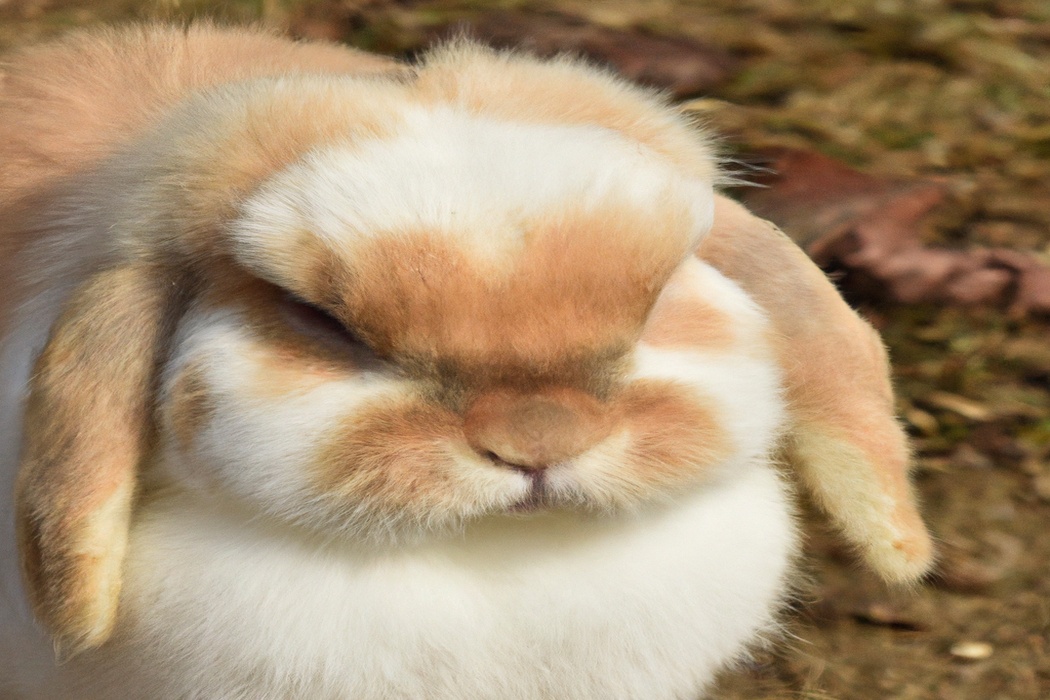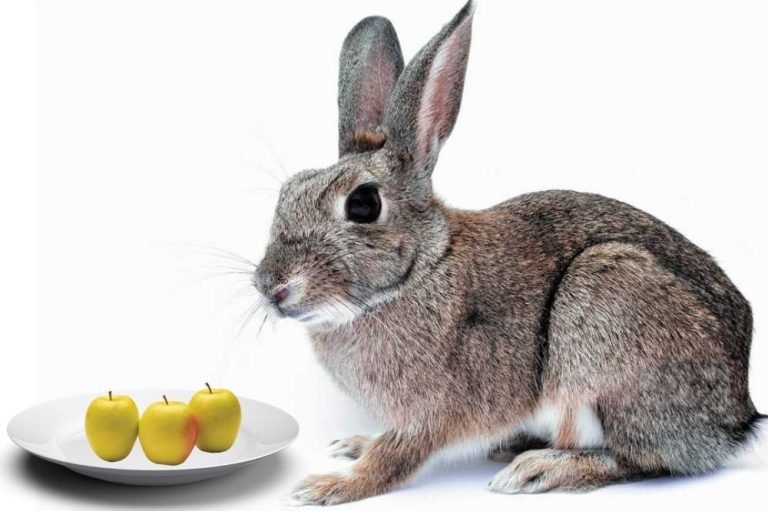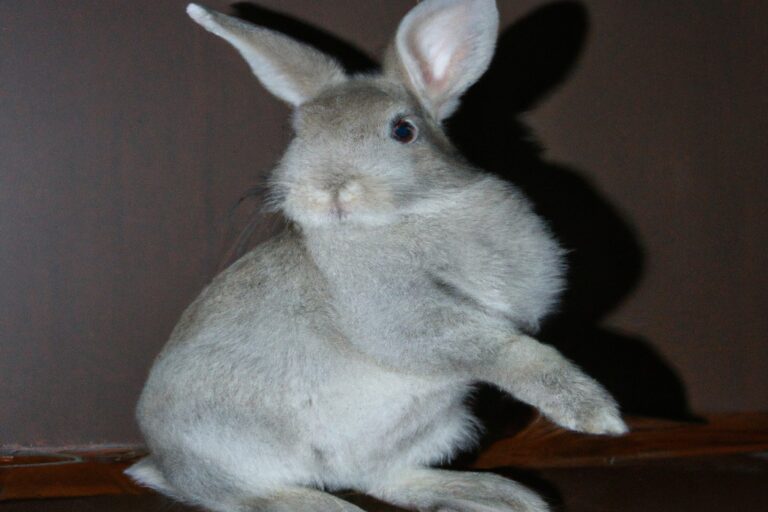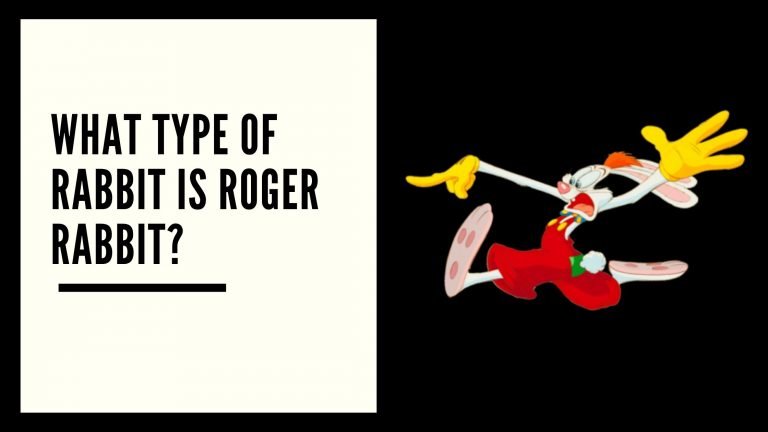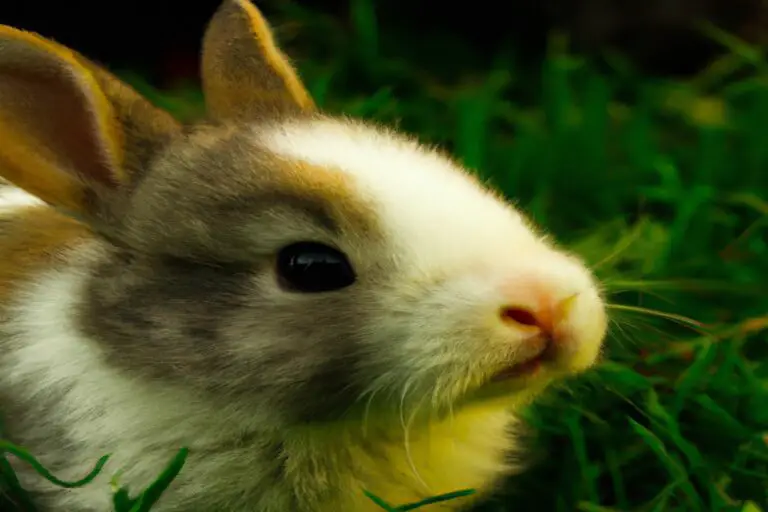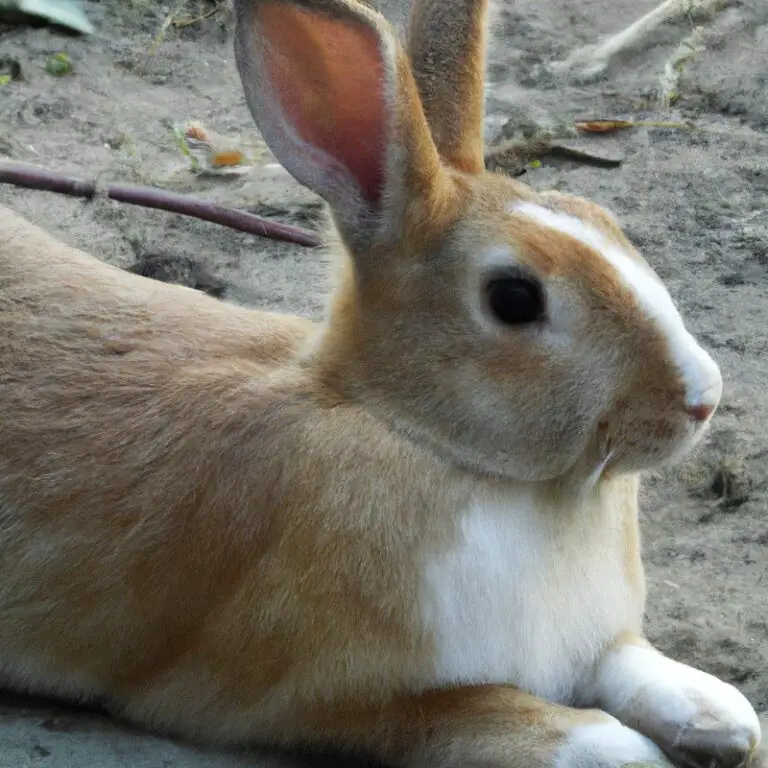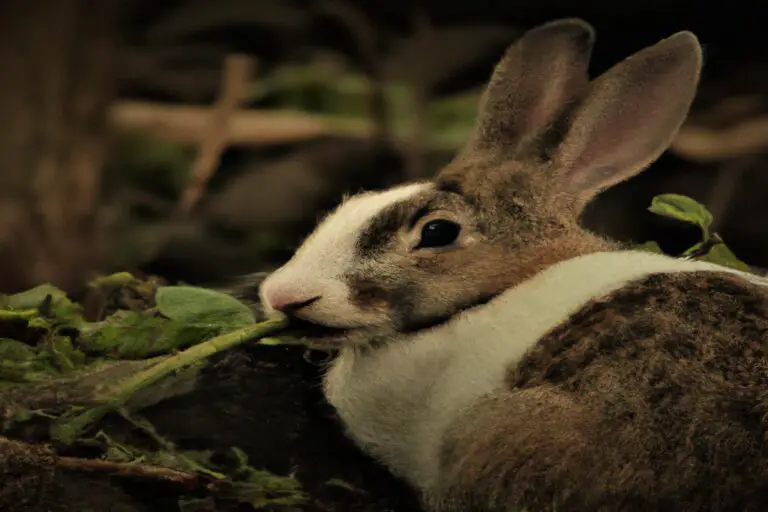When Do Lionhead Rabbits Stop Growing – A Complete Guide
Key Takeaways:
- Lionhead rabbits typically stop growing at around 6 months to 1 year of age.
- The size of a lionhead rabbit largely depends on its genes and individual development.
- Feeding a balanced diet and providing proper care can promote healthy growth in lionhead rabbits.
- Regular monitoring of their growth and consulting a veterinarian can ensure optimal development in lionhead rabbits.
Hey there! If you’re a proud owner of a lionhead rabbit or thinking of getting one, you might be wondering when these adorable creatures stop growing. Well, you’ve come to the right place! In this article, we’ll explore the different growth stages of lionhead rabbits and discover when they reach their full size.
From their early stages of rapid development to adolescence and maturity, we’ll cover it all.
We’ll also discuss the factors that influence their growth and provide some helpful tips to ensure they thrive. So, let’s hop right in and learn when those lionhead rabbits stop growing!
| Age | Growth Status |
|---|---|
| Birth to 4 months | Fast growth – reach adult size |
| 4 to 6 months | Slower growth – further development |
| 6 to 8 months | Near adult size – minimal growth |
| 8+ months | Fully grown – minimal to no growth |
Early growth stages of Lionhead rabbits
Lionhead rabbits experience rapid growth and development from birth to 3 months old, requiring proper nutrition and care during this stage.
Birth to 3 months old
During the first three months of a Lionhead rabbit’s life, they experience significant growth and development. From birth, these adorable little creatures are completely dependent on their mother for nutrition and care.
During this time, they will start to open their eyes and become more active.
Their fur will begin to grow and they will start to develop their iconic lion-like mane. It’s important to provide them with a healthy diet, plenty of fresh water, and a clean living environment to ensure their growth and well-being.

Rapid growth and development
During the rapid growth and development stage of Lionhead rabbits, they experience significant physical changes. Their bodies grow quickly, gaining muscle and bone mass while their fur and ears continue to develop.
As their size increases, they become more active and explore their surroundings with curiosity.
Proper nutrition and a healthy living environment are essential to support their growth at this stage. Regular veterinary check-ups are also important to ensure their overall well-being.
It’s a fascinating time as you witness your Lionhead rabbit transform into a beautiful adult.
Proper nutrition and care during this stage
During the early growth stages of Lionhead rabbits, proper nutrition and care are essential.
Provide a balanced diet consisting of fresh hay, quality pellets, and a wide variety of fresh vegetables.
Limit sugary treats and ensure they have access to fresh water at all times.
Regularly clean their living space to prevent any health issues.
Additionally, spend time socializing and interacting with your rabbit to help them become comfortable with humans.
Brush their long coat regularly to prevent matting and keep them clean.
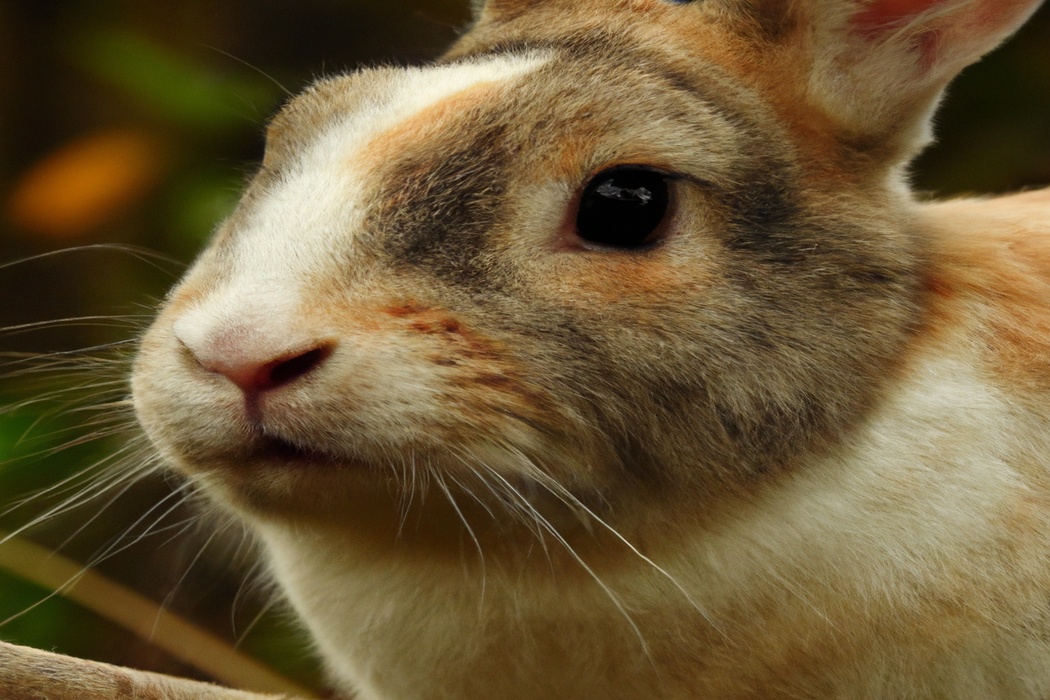
3 to 6 months old
Between 3 to 6 months old, lionhead rabbits are in their adolescence stage. They have gone through the initial growth spurt and are now settling into their adult size and shape.
During this period, their bodies continue to develop, and they may experience some growth in their fur.
It is important to provide them with a balanced diet, regular exercise, and plenty of socialization to ensure they grow up healthy and happy. Keep an eye on their weight and consult a veterinarian if you have any concerns about their growth.
Continued growth and maturing
Continued growth and maturing of Lionhead rabbits can vary somewhat from rabbit to rabbit, but in general, they tend to reach their full adult size and maturity around the age of 6 to 8 months.
During this time, their bodies will continue to develop, and their fur may also change in texture and color.
It’s important to provide proper nutrition and care during this period to support their continued growth and ensure they mature into healthy, happy rabbits.
Regular veterinary check-ups can also help ensure their overall development is on track.
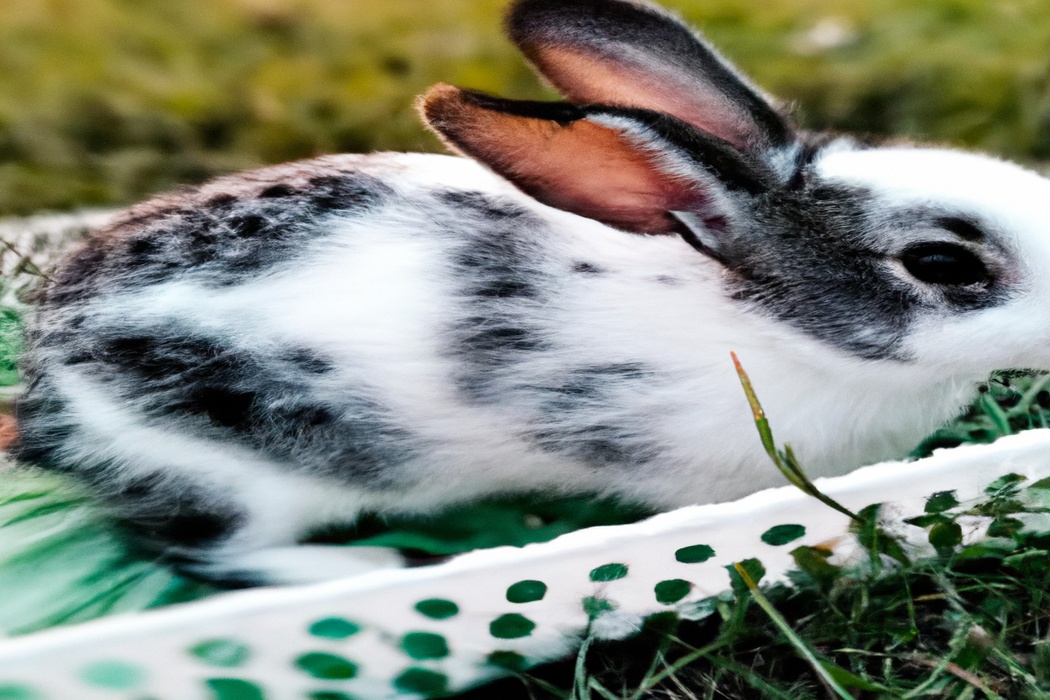
Socialization and training tips
Socialization is an important aspect of raising a happy and well-behaved Lionhead rabbit.
Introduce them to different people, animals, and environments to help them become comfortable and social.
Regular positive reinforcement training sessions can help teach them basic commands and good behavior.
Be patient and consistent in your training, using rewards and praise.
Always handle your rabbit gently and respect their boundaries.
Provide them with plenty of mental stimulation and toys to keep them engaged.
Regular playtime and interaction will help strengthen your bond with your furry friend.
Adolescence and maturity
During adolescence, lionhead rabbits experience slower growth rates and undergo changes in behavior and physical appearance. As they reach 10 months and older, they reach their fully matured size and weight.
6 to 10 months old
At 6 to 10 months old, lionhead rabbits are still in their growing stage but are getting closer to reaching their adult size. During this period, they will continue to fill out and develop their adult features.
At around 6 months, you may start to notice that your lionhead rabbit is slowing down in terms of growth.
However, it’s important to note that each rabbit is unique and may experience growth at different rates. It’s best to provide them with a balanced diet, regular exercise, and a clean and comfortable living environment to support their growth and development during this stage.
Slower growth rate
Lionhead rabbits have a slower growth rate compared to other rabbit breeds.
This means that they take longer to reach their full size and weight.
While most rabbits reach their adult size in about 6 months, lionheads take around 8 to 12 months.
During this time, they may experience periods of rapid growth followed by slower growth.
It’s important to provide them with a balanced diet and plenty of exercise to support their growth and development.
Lionhead rabbits may also continue to fill out and develop their mane as they mature.
Changes in behavior and physical appearance
As lionhead rabbits grow and develop, you will notice changes in both their behavior and physical appearance. In terms of behavior, juvenile lionhead rabbits tend to be more energetic and playful compared to adult rabbits.
They may also exhibit more exploratory behaviors, such as digging and chewing.
As they reach maturity, lionhead rabbits may become more calm and less prone to these energetic behaviors. Physically, lionhead rabbits go through several stages of development.
Their fur will continue to grow and become denser and longer as they mature.
They will also develop their distinct “mane” around their head and neck, which gives them their lion-like appearance. Additionally, their body size and shape will change as they reach full adulthood.
It’s important to note that these changes can vary from rabbit to rabbit, as every individual is unique.
It’s always a good idea to closely observe and monitor your lionhead rabbit’s behavior and physical development to ensure they are growing and maturing healthily. Consider consulting with a veterinarian who specializes in rabbits if you have any concerns or questions about your rabbit’s development.
10 months and older
As the lionhead rabbit reaches 10 months and older, you can expect it to have reached its full size.
At this age, the rabbit has typically stopped growing and has reached its mature size.
It’s important to note that individual rabbits may vary slightly in size, so you may notice some minor differences between rabbits of the same age.
However, overall, you can consider your lionhead rabbit to be fully grown by the time it reaches 10 months and older.
Fully matured size and weight
Fully matured Lionhead rabbits typically reach a size of 2-3 pounds and have a body length of about 8-10 inches.
However, it’s important to note that individual differences exist among rabbits, so some may be larger or smaller than average.
In terms of weight, males tend to be slightly larger than females.
Providing a nutritious diet, ample exercise, and regular veterinary care can help ensure that your Lionhead rabbit grows to its full potential.
Maintaining their health and wellbeing
Maintaining the health and wellbeing of your lionhead rabbit is essential for their overall happiness and longevity.
Here are a few important tips to keep in mind:
- Provide a balanced diet: Offer a variety of fresh hay, vegetables, and a limited amount of pellets. This will ensure they receive the necessary nutrients for optimal health.
- Regular exercise: Encourage physical activity by providing space for your rabbit to run and play. Engaging in regular exercise promotes muscle strength and mental stimulation.
- Proper habitat: Create a safe and comfortable living environment for your rabbit. Provide a spacious cage or hutch with proper bedding, hiding spots, and toys for entertainment.
- Hygiene and grooming: Regularly groom your lionhead rabbit to prevent matting, remove loose fur, and maintain good hygiene. Trim their nails and clean their living area to prevent the buildup of bacteria.
- Veterinary care: Schedule regular check-ups with a knowledgeable veterinarian who specializes in rabbits. This will ensure that any potential health issues can be addressed early on and appropriate treatment can be provided.
Factors that influence growth
Factors that influence growth include genetics, nutrition and diet, and environmental factors.
Genetics
Genetics plays a significant role in determining the growth rate of lionhead rabbits. Their size and development are influenced by the genetic traits inherited from their parents.
Certain genes control the timing and extent of growth, as well as the overall size of the rabbit.
Factors such as breed, lineage, and genetic variations can all contribute to differences in growth patterns among lionhead rabbits. Understanding the genetic background of a rabbit can provide insight into its growth potential and help breeders make informed decisions about breeding and care.
How genetics can determine size and growth potential
Genetics plays a significant role in determining the size and growth potential of lionhead rabbits. The genes inherited from their parents ultimately influence how big they will get and the speed at which they will grow.
While some rabbits may have genes that make them naturally smaller, others may have genes that contribute to larger size.
This genetic predisposition can impact various aspects of their growth, including their overall body size, bone structure, and muscle development. Therefore, understanding the genetic background of lionhead rabbits can provide valuable insights into their potential size and growth.
Nutrition and diet
Nutrition and diet play a vital role in the growth and overall well-being of lionhead rabbits. It’s important to provide them with a balanced diet that includes high-quality hay, fresh vegetables, and a limited amount of pellets.
Avoid feeding them sugary or starchy foods, as these can lead to weight gain and potential health issues.
Additionally, ensure they have access to clean, fresh water at all times. Regularly consult with a veterinarian to ensure you are meeting your lionhead rabbit’s specific nutritional needs.
The role of a balanced diet in proper growth
A balanced diet plays a crucial role in ensuring proper growth for lionhead rabbits.
It provides the necessary nutrients, vitamins, and minerals to support their development.
Protein is essential for muscle and tissue growth, while fiber aids in digestion.
Fresh vegetables and hay contribute to dental health and promote overall well-being.
Avoid overfeeding to prevent obesity, which can hinder growth.
Remember, a balanced diet is the key to ensuring your lionhead rabbit’s healthy growth and development.
Environmental factors
Environmental factors play a significant role in the growth of lionhead rabbits. The following factors can influence their growth:
- Temperature: Extreme temperatures can hinder their growth, so it’s essential to keep them in a comfortable environment.
- Lighting: Adequate lighting is crucial for proper growth and development. Ensure they have access to natural light or provide artificial lighting if necessary.
- Ventilation: Good airflow is important to prevent respiratory problems and promote healthy growth in lionhead rabbits.
- Cage size: A spacious cage allows for better movement and exercise, which is essential for their growth and development.
- Quality of bedding: Using suitable bedding materials ensures a clean and hygienic environment, promoting healthy growth.
- Diet: Providing a balanced diet with the right nutrients is vital for their growth and overall health.
- Social interaction: A stimulating and stress-free environment with regular social interaction helps in their overall well-being and growth.
Remember, creating a suitable environment for your lionhead rabbits is crucial for their growth and overall well-being.
Impact of living conditions on growth
The living conditions of lionhead rabbits can greatly impact their growth. Adequate space, a clean and comfortable environment, and access to a nutritious diet are all essential for healthy development.
Lack of space and overcrowding can hinder growth, as rabbits need room to move and exercise.
Poor sanitation can lead to diseases and stunted growth. Additionally, a diet lacking in essential nutrients can negatively affect growth.
Providing the right living conditions is important for ensuring optimal growth in lionhead rabbits.
Frequently Asked Questions
How long do Lionhead rabbits typically live?
Lionhead rabbits typically live between 7 and 10 years.
Some may even live up to 12 years with proper care and a healthy lifestyle.
It’s important to provide them with a balanced diet, regular exercise, and annual check-ups with a veterinarian to ensure their longevity.
Additionally, keeping them in a stress-free environment and providing mental stimulation can also contribute to their overall well-being and lifespan.
Can you predict the final size of a Lionhead rabbit?
Predicting the final size of a Lionhead rabbit can be challenging.
Genetic factors, diet, and overall health play a role in their growth.
On average, Lionhead rabbits reach their adult size between 6 months to 1 year old.
However, individual variations can occur.
Monitor their growth, provide a balanced diet, and consult a veterinarian for guidance on their specific needs.
Understanding that each rabbit is unique will help you better predict their final size.
How can I ensure proper growth and development in my Lionhead rabbit?
To ensure proper growth and development in your Lionhead rabbit, here are some key tips to keep in mind:
- Provide a balanced diet: Offer a high-quality pellet food specifically formulated for rabbits, along with fresh hay and a variety of leafy greens. This will ensure they receive the necessary nutrients for healthy growth.
- Offer plenty of exercise: Lionhead rabbits are active animals and need ample space to run and explore. Provide a large, secure area where they can exercise daily, such as a spacious enclosure or a rabbit-proofed room.
- Keep them mentally stimulated: Provide toys, tunnels, and chewables to keep your rabbit mentally stimulated. This will prevent boredom and encourage natural behaviors, contributing to their overall well-being.
- Schedule regular check-ups: Regular vet check-ups are essential for monitoring your rabbit’s growth and ensuring any health issues are addressed promptly. Schedule annual check-ups and consult your vet about any concerns regarding your rabbit’s growth.
- Practice proper grooming: Lionhead rabbits have long, fluffy coats that require regular grooming to prevent matting and keep them clean. Brush them gently and regularly to maintain their coat’s health and prevent any discomfort or skin issues.
Are there any health issues that can affect their growth?
Health issues can indeed affect the growth of Lionhead rabbits.
Some common problems that can impact their growth include dental issues, such as overgrown teeth or malocclusion, which can hinder their ability to eat properly.
Additionally, gastrointestinal stasis, which is a slowing down of the digestive system, can cause poor nutrient absorption and overall stunted growth.
Parasites, such as mites or worms, can also lead to health issues and affect their growth.
It’s important to monitor your rabbit’s health regularly and consult a veterinarian if you notice any growth concerns.
Final Verdict
The growth of Lionhead rabbits can be categorized into two stages: the early growth stages, which are from birth to 6 months old, and adolescence and maturity, which occur from 6 months and onwards. During the early growth stages, it is crucial to provide proper nutrition and care to support their rapid growth and development.
As they enter adolescence and maturity, their growth rate slows down, and they undergo behavioral and physical changes.
Factors such as genetics, nutrition, and environmental conditions can influence their growth. To ensure proper growth and development, it is vital to provide a balanced diet and maintain their overall health and wellbeing.

